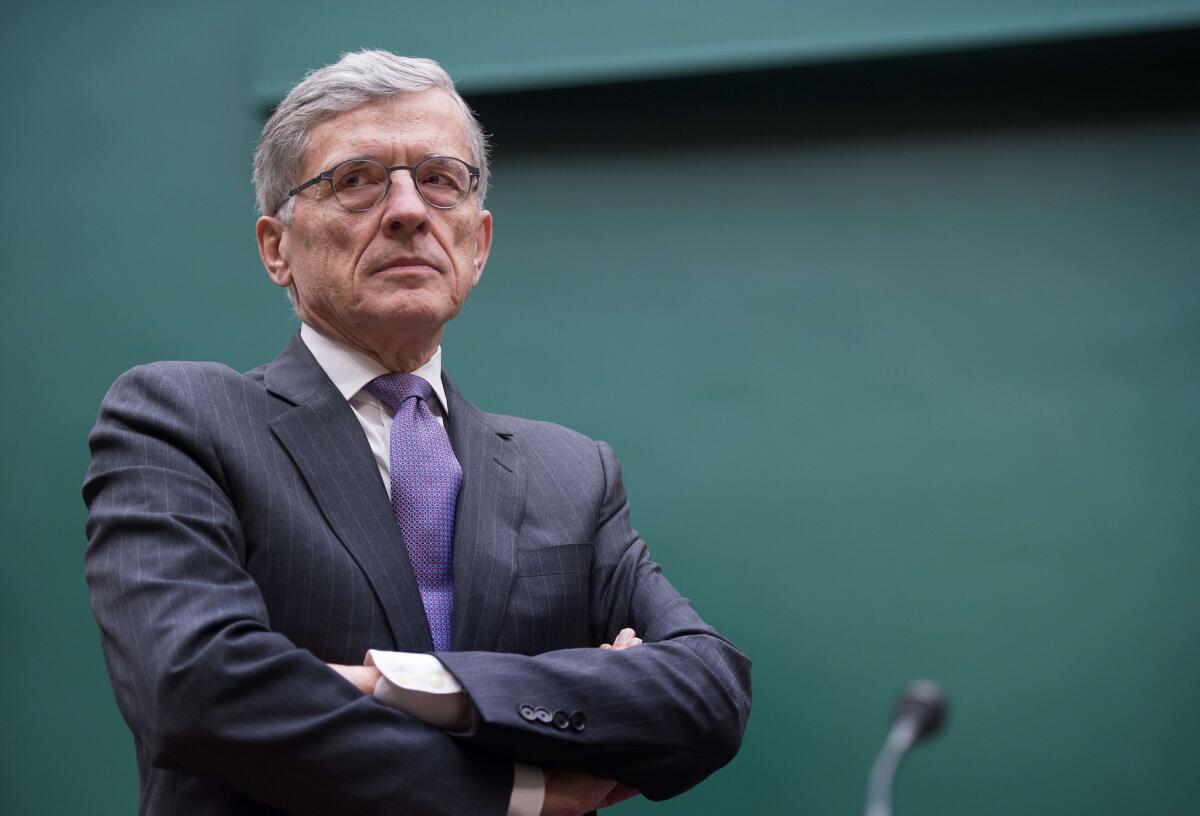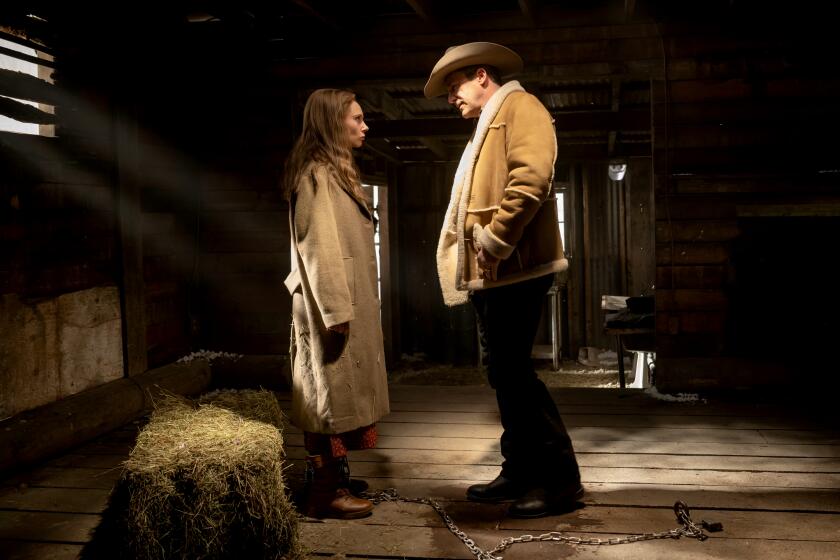FCC’s media-ownership rules debated at House hearing

The Federal Communications Commission was attacked by Republicans and Democrats during a congressional hearing Wednesday on the regulatory agency’s media-ownership rules.
Among the issues debated were the FCC’s long-standing rule prohibiting one company from owning a newspaper and television station in the same market; the role current regulations play in hindering traditional media’s ability to compete against emerging digital platforms, and the lack of diversity among broadcasters.
The FCC, represented at the hearing by the chief of the commission’s media bureau, William Lake, was also taken to task for failing to complete its 2010 quadrennial review of ownership rules, as mandated by Congress. New FCC Chairman Tom Wheeler plans to roll the 2010 review into the 2014 report and is aiming for a 2016 completion.
The hearing of the House Energy and Commerce Committee’s subcommittee on communications and technology was split along party lines when it came to how the media industry should be regulated.
Republicans, led by subcommittee Chairman Greg Walden (R-Ore.), challenged the FCC for keeping some rules, including the so-called newspaper-TV cross-ownership ban, on the books for almost 40 years.
“The media-ownership rules persist as if the Internet simply did not exist,” Walden said in his opening remarks, adding that the regulations “need to reflect today, not the Ford administration.”
Newspaper and local broadcasters, Walden said, will “continue to struggle” without regulatory relief.
Rep. Anna Eshoo (D-Menlo Park), the ranking Democrat on the committee, expressed concern that further deregulation would benefit big media but wouldn’t better serve the public.
Eshoo noted that 10 companies own close to 700 local television stations across the country, and that more consolidation would limit diversity and ideas in the marketplace.
“We need to examine this in terms of what consolidation is actually going to do for the American people,” Eshoo said, adding that she wondered if the panel’s debate was about better business models for media companies or serving democracy.
During questioning, Walden told the FCC’s Lake that “I don’t think you guys get it.” He noted that the FCC has not revisited its rules regarding radio ownership since 1996, despite the dramatic competitive changes in that marketplace thanks to satellite radio and new digital platforms such as Pandora and Spotify.
Lake responded that the agency has studied changes in competition for radio and has not seen enough evidence that the 1996 rules need to be revisited.
One witness at the hearing, National Hispanic Media Coalition executive vice president Jessica Gonzalez, argued that radio was already too consolidated, and blasted Clear Channel Communications Inc., the nation’s biggest owner of radio stations and the operator of KFI-AM (640) in Los Angeles.
Listeners of Clear Channel stations, Gonzalez said, are “fed a steady diet of racism and stereotyping.” In her written testimony, she singled out KFI hosts John Kobylt and Ken Chiampou of “The John and Ken Show.” The duo, she said, “have mercilessly targeted Latinos, Korean Americans, Native Americans, gay men, and the poor.”
Clear Channel, Gonzalez said, “has gone beyond a simple failure to serve the local community and, in many cases, is actively harming it.”
A Clear Channel representative countered that Gonzalez, “simply does not understand the work we do for our communities, or the work we have done to promote the diversity in radio broadcast ownership.”
There was also a debate about the potential implications of gutting the newspaper-TV cross-ownership rules (Tribune Co. has a waiver to own the Los Angeles Times and KTLA-TV. Paul Boyle, senior vice president of the Newspaper Assn. of America said relaxing the ban wouldn’t lead to a “massive wave of mergers” but instead could help keep some struggling newspapers afloat.
“In an era when the nation’s largest cable company can purchase one of the big-four television networks, and is attempting to acquire the nation’s second-largest cable company, it makes little sense to prohibit a 10,000-circulation newspaper in the Midwest from being owned by the same company that owns a television station in that town,” Boyle testified.
Advocating keeping the prohibition in place was Bernard Lunzer, president of the Newspaper Guild Communications Workers of America.
“Further concentration will mean less credible news, he said, adding, “we need real innovation and investment ... consolidation of existing organizations will not get us there.”
Rep. Bobby Rush (D-Ill.) blasted the FCC for not doing more to encourage minority ownership in the media. Currently, only 3% of TV stations are owned by minorities.
“I hear a lot of good intentions ... but it’s all fake.” Rush said to Lake, adding that “I’m absolutely totally disappointed in the FCC and their position on minority ownership.”
Follow Joe Flint on Twitter @JBFlint
From the Oscars to the Emmys.
Get the Envelope newsletter for exclusive awards season coverage, behind-the-scenes stories from the Envelope podcast and columnist Glenn Whipp’s must-read analysis.
You may occasionally receive promotional content from the Los Angeles Times.




